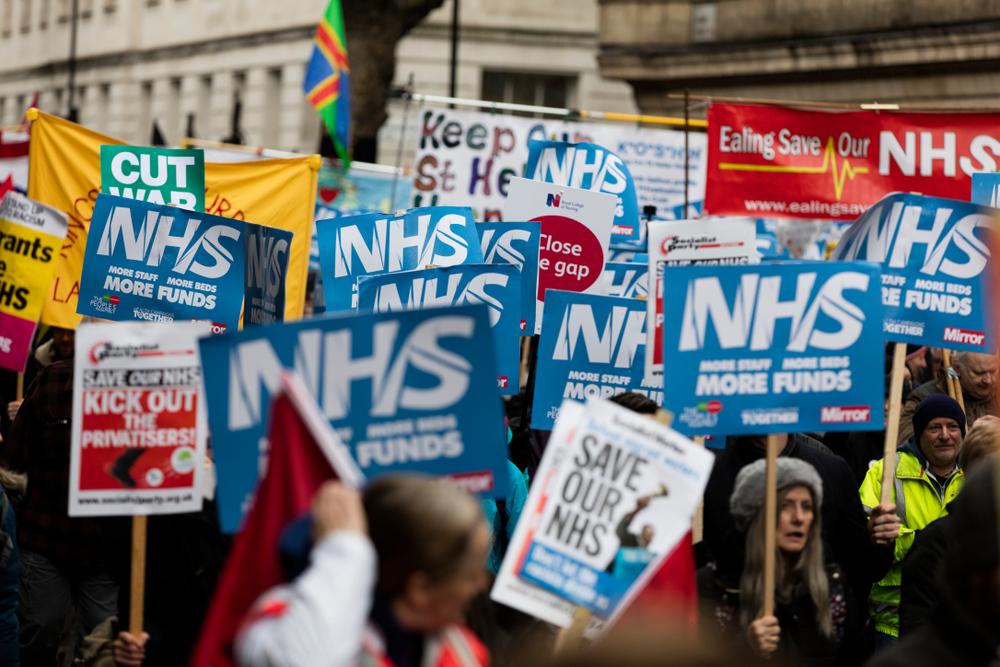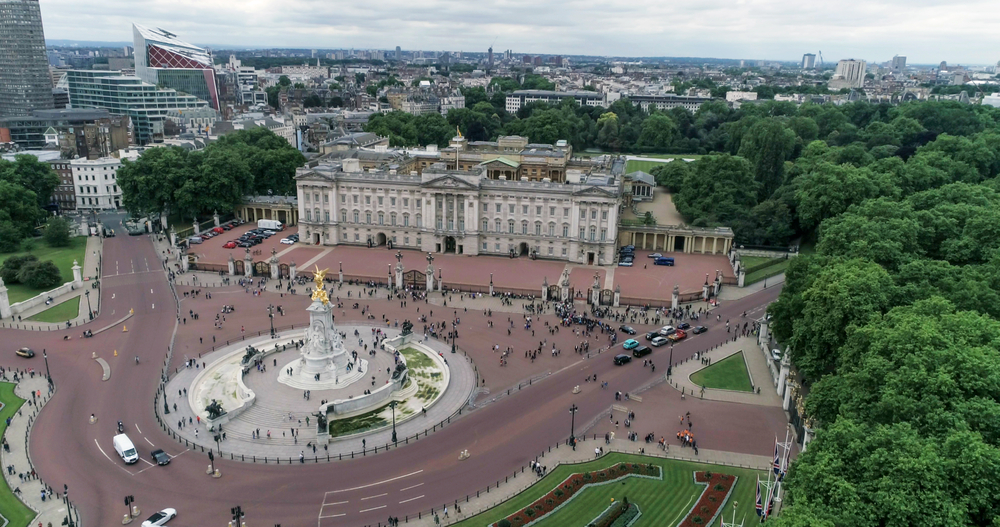On a recent trip home to England – long delayed by COVID – I was disturbed to see a trend in healthcare there. To see US healthcare being exported to the UK. Or British medicine being Americanized.

Socialized Healthcare
Healthcare in Britain has, until recently, been provided almost exclusively by the National Health Service (NHS) that was formed in the aftermath of WWII after the Labor government defeated Churchill in a landslide.
It is a government owned and administered service, providing care to everyone. Health minister responsible for the NHS, Aneurin Bevin, noted it would provide “freedom from fear” of getting sick (I find it ironic that the “don’t tread on me” wonks claim it is also freedom they are worried about – freedom not to have government involved in healthcare).
Overall, the NHS has been popular and a great success, and any politician who has tried to mess with it has been met with a lot of opposition. At least that seemed to be the case until the last ten years of conservative government.
Underfunded
Now “the NHS has experienced a decade of underfunding” with inadequate annual budget increases to keep it up with needed medical advancements, according to NHS Support Federation.
The claim is 17,000 hospitals have been closed, and shadow health secretary Wes Streeting.
Complained there are “record waiting lists, 100,000 NHS staff shortfall and 112,000 vacancies in social care.”
At a dinner party I was invited to, the hostess, who is a consultant pulmonologist at a large London hospital, corroborated this deterioration of the NHS – noting things have been particularly bad in the last couple of years due to a combination of defunding, COVID and Brexit – Brexit having forced an exodus of healthcare workers.
Brexit has also likely added to the defunding of the NHS as Britain has had “the largest contraction of GDP among the G7 countries during the pandemic.”
An article in the BMJ – the flagship publication of the conservative British Medical Association – notes the government appears to have tried to hide behind COVID. “The pandemic has, undeniably, provided a cover for the most significant dismantling of state that the country has experienced in years” notes the article.
Private Medicine Moves In
Unhappy with the shortcomings of the NHS, many people I spoke to told me how they had taken out private health insurance. My brother-in-law Olly paid some £22,000 out of pocket to get a heart ablation for his recurrent atrial fibrillation as it would have been some six months wait to get it under the NHS.
The unhealthy consequence, to my mind, is that this move to private healthcare has attracted vendors from across the Atlantic – the most prominent symbol of which is the £1 billion, 184 bed hospital built by the Cleveland Clinic in Grosvenor Place - “where patients enjoy views of Buckingham Palace” and that is meant to open in early 2022.
Hospital Corporation of America (which owns Spotsylvania Regional Medical Center, and which has the dubious reputation of having made “the largest fraud settlement in United States” in 2002) owns 30 hospitals in the UK
And a subsidiary of the US Insurance company, Centene Corporation, recently bought out a group of 58 primary care practices, covering half a million patients, that was previously owned by a group of British doctors.
A Saleable Commodity?
You might argue it’s OK for people who have it to spend their money on faster/more convenient healthcare (though not better – Olly’s ablation would have been done by the same cardiologist under the NHS if he had waited).
But director of the thinktank Centre for Health and the Public Interest, David Rowland, has the same concern that I do. He says that his “worry is the two-tier health system” – a phenomenon I see here in the US, where you can get the best healthcare in the world if you have the money. Then there’s the chronically sick and underserved “have nots” I see at the Moss Clinic.
“An estimated £1bn investment in a single hospital is a sign of how strongly foreign investors are betting against the NHS being able to meet the future health needs of the population” says Rowland. “And the government seems entirely relaxed about this shift”
An article in The Guardian echo’s this, saying “it is clear that an increased role for the private sector is the government plan.” And goes on to raise the alarm at the idea of exchanging the NHS for private healthcare.
I would note, the avarice of US healthcare vendors that have pushed healthcare costs in the US to nearly three times that in the UK ($12,530 versus $3,271 for 2020) is not encouraging. The Guardian seems to feel the same noting “the public sees clearly how much worse people fare under for-profit healthcare systems such as in the US.”


